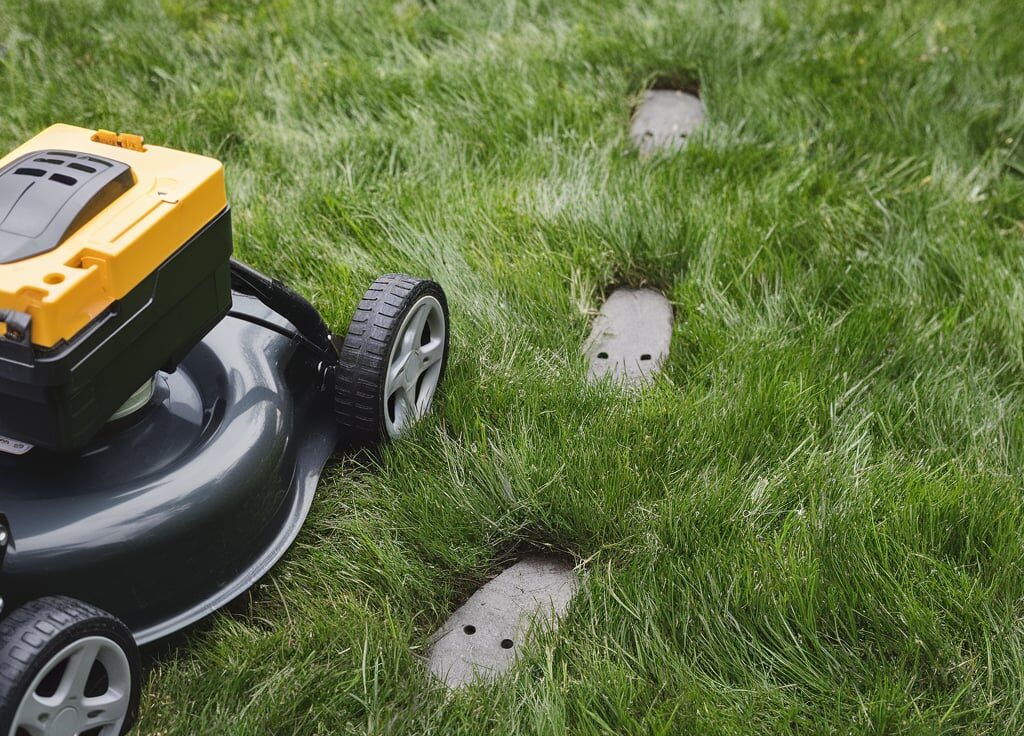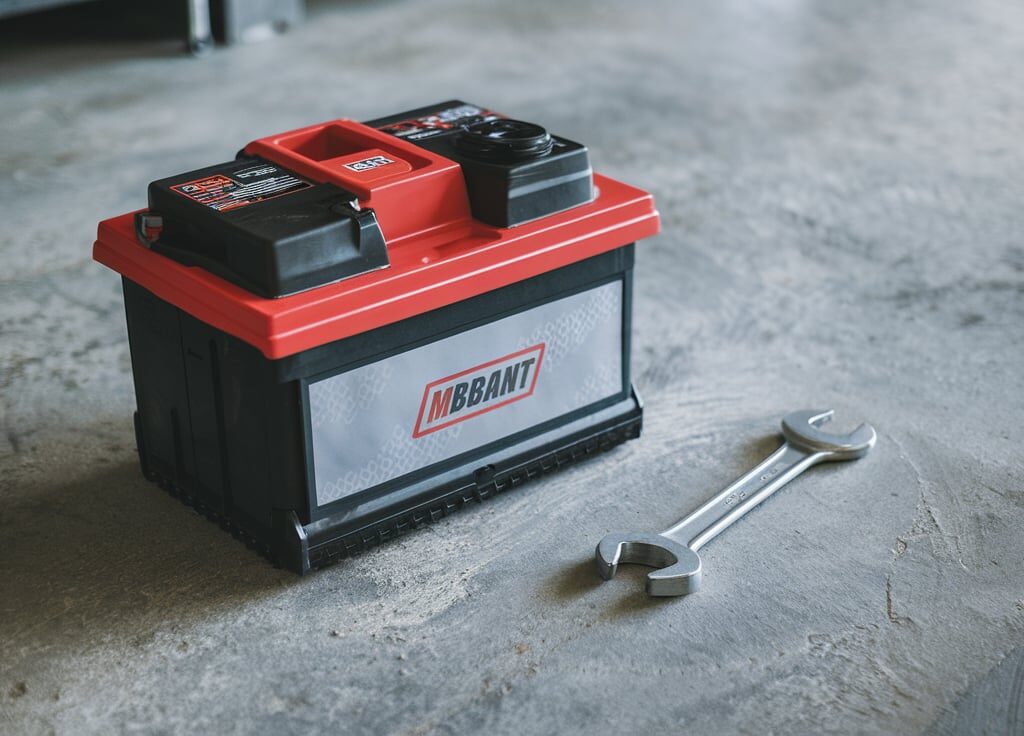Are you tired of dealing with lawn mower battery problems just when you need a perfectly manicured lawn? You’re not alone.
Imagine this: it’s a sunny weekend morning, the grass is dewy, and you’re ready to enjoy a peaceful day of gardening. But as you turn the key or push the button, nothing happens. Frustrating, right? Understanding the common issues that plague lawn mower batteries can save you time, money, and a whole lot of stress.
We’ll uncover the hidden culprits behind these problems and offer you straightforward solutions to keep your mower running smoothly. By the end, you’ll feel empowered to tackle any battery issue with confidence and ease. So, let’s dive in and discover how to keep your lawn mower in peak condition!
Common Battery Issues
Lawn mower batteries often face issues like weak charging and quick drainage. Cold weather can reduce battery life, causing starting problems. Corroded terminals might prevent proper power flow, leading to engine failure. Regular maintenance helps avoid these common problems.
Lawn mower battery issues can be a real headache, especially when you’re all set to give your lawn the care it deserves. Batteries can be fickle, and understanding the common problems you might face can save you time and frustration. Whether it’s a battery that refuses to charge or one that gives up too quickly, being informed can help you keep your mower running smoothly.
Battery Not Charging
If your lawn mower battery isn’t charging, it could bring your gardening plans to a grinding halt. This issue often arises from loose or corroded connections. Check for any dirt or rust on the terminals and clean them using a wire brush. Sometimes, a faulty charger might be the culprit. Try using a different charger to see if the battery responds. If you’ve eliminated these possibilities, it may be time to replace the battery altogether.
Short Battery Life
A battery that drains too quickly can be incredibly frustrating. Over time, batteries lose their ability to hold a charge. If you’ve noticed your mower dying before the job is done, it might be a sign of a deteriorating battery. Consider how often you charge your battery. Frequent charging can wear it out faster. Invest in a smart charger that can extend battery life by preventing overcharging.
Battery Overheating
Have you ever noticed your battery getting uncomfortably hot? Overheating is a sign of stress and can lead to permanent damage. This can happen if the battery is charged for too long or used excessively in one go. Ensure that your charger has an automatic shut-off feature to prevent overheating. Give your battery breaks during extended mowing sessions to cool down. Address these issues early to avoid buying a new battery prematurely. Isn’t it time to take a closer look at your mower’s battery and address these common issues? Your lawn—and your peace of mind—will thank you.
Diagnosing Battery Problems
Lawn mower battery issues can cause starting troubles. Check for loose connections or corrosion. A voltmeter helps test battery voltage.
Diagnosing Battery Problems in your lawn mower can save you time and money. Imagine heading out to mow your lawn only to realize your mower won’t start. Frustrating, right? Understanding how to diagnose battery issues can help avoid such moments. You don’t need to be a mechanic to get started. With a bit of patience and attention, you can identify and fix common battery problems yourself.
Visual Inspection
Start with a visual inspection. Look at the battery for any obvious signs of damage. Is there any corrosion or leakage? These can indicate a failing battery. Sometimes, batteries can swell, showing they’re overheated or overcharged. If you notice any of these signs, it’s likely time for a replacement. Look at the surrounding wires and components, too. Ensure everything looks intact and properly connected. Small things like frayed wires can cause big problems.
Voltage Testing
Testing the voltage is straightforward and crucial. You need a multimeter or voltmeter for this. Set it to measure DC voltage. Attach the probes to the battery terminals. You should see a reading that matches the battery’s voltage rating. If the reading is lower, your battery might be weak or dying. Inconsistent voltage readings could mean internal damage. This might require professional help or battery replacement.
Checking Connections
Check all battery connections. Loose or corroded connections can hinder proper power flow. Remove any corrosion with a wire brush or sandpaper. Clean connections ensure reliable electricity transfer. Make sure all connections are tight and secure. A loose connection might be the reason your mower isn’t starting. Diagnosing battery problems doesn’t have to be daunting. With these steps, you can pinpoint issues and decide the next course of action. Have you ever faced a battery issue that seemed impossible to solve? Addressing these problems early can save you from a bigger headache later.
Solutions And Repairs
Lawn mower battery issues often disrupt garden care routines. Regular checks and timely repairs prevent unexpected power failures. Ensure batteries are charged and connections are secure for smooth mowing sessions.
Your lawn mower battery is the heart of your machine, powering its every move. But what happens when it starts acting up? Instead of letting frustration take over, let’s dive into some practical solutions and repairs that can breathe life back into your mower. Whether it’s a stubborn battery that won’t hold charge or corroded terminals playing spoilsport, there are steps you can take to solve these issues.
Replacing Faulty Batteries
Replacing a faulty battery isn’t rocket science. It’s a straightforward task that can save you a lot of hassle. First, identify the type of battery your mower uses. Is it lead-acid or lithium-ion? Once you know, you can purchase the correct replacement. Don’t forget to recycle the old battery responsibly. Many stores offer recycling programs. Simply take the old battery with you when you go to buy a new one. You’ll not only be solving your problem but also helping the environment.
Cleaning Battery Terminals
Corroded terminals can be a silent saboteur of your mower’s performance. Cleaning them is like giving your mower a fresh start. You’ll need a wire brush, baking soda, and water. Mix baking soda with water to create a paste and apply it to the terminals. Scrub gently with a wire brush. This will remove the corrosion and restore good electrical contact. Always wear gloves and safety glasses for protection.
Correct Charging Practices
Incorrect charging can shorten your battery’s lifespan. Are you charging your battery correctly? Use the charger that came with your mower or one recommended by the manufacturer. Avoid overcharging. Once the battery is fully charged, unplug it. Overcharging can lead to overheating and damage. Consider using a smart charger that automatically stops when the battery is fully charged. This simple practice can extend the life of your battery significantly. By addressing these common battery issues, you can ensure your lawn mower runs smoothly and effectively. Have you ever found yourself frustrated with a mower that wouldn’t start? Try these solutions and see the difference it makes. Your lawn—and your patience—will thank you.
Preventive Maintenance
Experiencing lawn mower battery issues? Regular preventive maintenance can help. Keep connections clean and secure. Charge batteries fully after each use.
Preventive maintenance keeps your lawn mower battery in top shape. It saves you from costly repairs and prolongs battery life. By following simple steps, you ensure a smooth mowing experience. Regular care helps avoid unexpected issues.
Regular Battery Checks
Regular checks help spot potential battery problems early. Inspect the battery for any corrosion or damage. Check the connections to ensure they are tight and clean. A voltmeter can measure the battery’s charge level. Keep a log of these checks to track battery health.
Proper Storage Techniques
Proper storage extends your battery’s lifespan. Store the battery in a cool, dry place. Avoid extreme temperatures, as they harm the battery. Disconnect the battery if you won’t use it for a while. Consider using a battery maintainer during long storage periods.
Avoiding Overuse
Avoiding overuse prevents battery strain. Don’t run the mower until the battery is fully drained. Regularly recharge after use to maintain optimal performance. Stick to the recommended mowing time for your battery type. This helps keep the battery healthy and efficient. `
Choosing The Right Battery
Selecting the perfect battery can solve common lawn mower issues. Battery capacity and compatibility are key factors to ensure smooth operation. A reliable battery helps avoid frequent replacements and unexpected breakdowns.
Choosing the right battery for your lawn mower can be a game-changer for your gardening routine. The right choice ensures your mower runs efficiently and lasts longer. But how do you make that choice? Let’s break it down into simple, actionable steps.
Battery Types
When considering a lawn mower battery, you’ll typically encounter two main types: lead-acid and lithium-ion. Lead-acid batteries are generally cheaper and have been around for a long time. They are reliable but tend to be heavier. On the other hand, lithium-ion batteries are lightweight and require less maintenance. They often have a longer lifespan and charge faster. However, they can be more expensive upfront. Think about how often you mow your lawn. If you’re a frequent mower, investing in a lithium-ion battery might save you time and effort in the long run.
Compatibility Considerations
Not every battery will fit your lawn mower. You need to ensure compatibility with your specific model. Check the voltage and size requirements specified by your mower’s manufacturer. Imagine buying a battery that doesn’t fit your mower. Frustrating, right? Avoid this by double-checking the dimensions and connections. Keep your mower’s manual handy or consult the manufacturer’s website. This will help you match the battery specifications precisely.
Performance Features
Performance is key when choosing a battery. Look for features that enhance battery life and efficiency. Amp-hour (Ah) rating is a crucial factor—it indicates how long the battery will run before needing a recharge. Higher Ah ratings mean longer run times. This is particularly useful if you have a large lawn. Also, consider batteries with a fast charging capability to reduce downtime. Think about the temperature range in which your battery can operate efficiently. If you live in an area with extreme weather, ensure your battery can handle those conditions. Choosing the right battery isn’t just about price. It’s about finding a balance between cost, performance, and compatibility. Have you ever had to return a mismatched battery? Share your experiences and insights in the comments!
Professional Help
Experiencing lawn mower battery issues? Professional help can diagnose and fix problems efficiently. Ensure your mower stays in top condition with expert assistance.
Keeping your lawn mower running smoothly is crucial for maintaining a pristine lawn. Yet, battery issues can throw a wrench in your weekend plans. While some problems are easily fixed at home, others require a professional touch. Knowing when to seek expert help can save you time, money, and frustration.
When To Consult A Technician
Not every lawn mower battery problem requires a technician. However, if your battery won’t hold a charge despite your best efforts, professional assistance might be necessary. Strange noises, excessive heat, or a complete lack of power signal deeper issues. Think about your expertise. If you’re not comfortable with electrical components, it’s best to seek help. A technician can diagnose problems accurately and suggest the best course of action.
Finding Reliable Services
Selecting a reliable service is crucial. Start by asking friends or family for recommendations. Online reviews can also provide insights into a company’s reputation. Look for certifications or affiliations with lawn equipment manufacturers. These often indicate a higher standard of service. Don’t hesitate to call and ask about their experience with your specific mower model.
Cost Considerations
Professional help comes with a price tag. However, consider the long-term benefits. Fixing a small issue now can prevent costly repairs later. Get multiple quotes to compare prices. Keep in mind that the cheapest option isn’t always the best. Quality service ensures your mower runs efficiently, saving you money on future repairs. Ever faced a surprising repair bill? By understanding service costs upfront, you can budget accordingly. This preparation means no more unexpected surprises.

Frequently Asked Questions
How Do I Know If My Lawn Mower Battery Is Bad?
Check for signs like difficulty starting, slow cranking, or no power. Use a multimeter to test voltage. A reading below 12. 6 volts indicates a bad battery. Inspect for corrosion or leakage. Replace if necessary to ensure optimal mower performance.
What Kills Lawn Mower Batteries?
Lawn mower batteries can die due to sulfation, extreme temperatures, overcharging, or undercharging. Regular maintenance and proper storage help prolong battery life. Always ensure connections are secure and clean to prevent draining. Using the right charger and avoiding deep discharges also preserves battery health.
Why Does My Lawn Mower Battery Keep Dying All?
Your lawn mower battery might keep dying due to overcharging, undercharging, or faulty connections. Regular maintenance, checking terminals, and ensuring proper charging can help extend battery life. Consider replacing old batteries and storing them correctly during off-seasons to prevent drainage.
Why Won’t My Lawn Mower Battery Stay Charged?
A lawn mower battery won’t stay charged due to old age, faulty charger, or corroded terminals. Check for loose connections or damaged cells. Replace the battery if necessary. Regular maintenance helps prevent charging issues.
Conclusion
Lawn mower battery issues can be frustrating. Regular maintenance helps avoid them. Check connections and clean terminals often. Store batteries in a cool, dry place. Ensure proper charging to extend battery life. Replace old batteries when needed. Understanding these basics saves you time and money.
A well-functioning battery ensures a smooth mowing experience. Keep these tips in mind for hassle-free lawn care. Enjoy a neat, tidy lawn without battery worries. Your lawn deserves the best care. Stay proactive and enjoy a healthy, green yard. Happy mowing!


